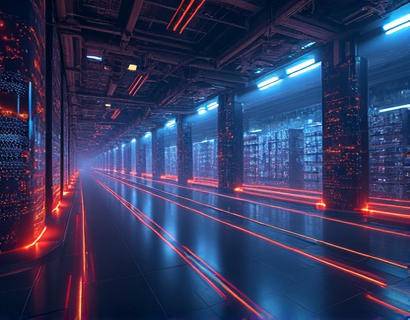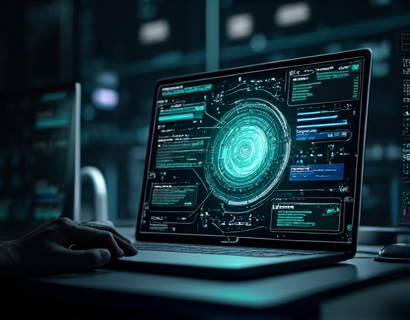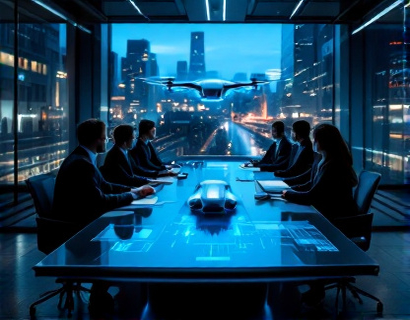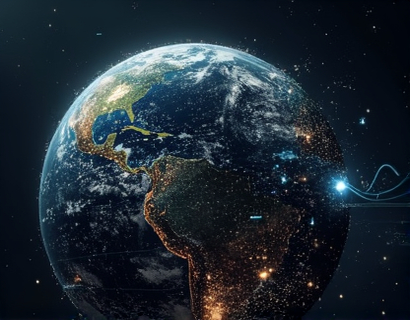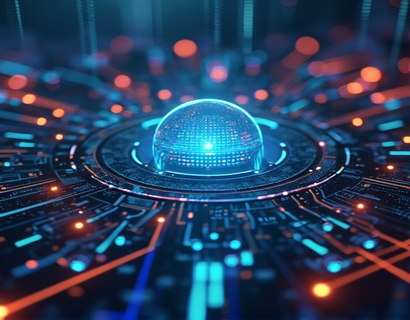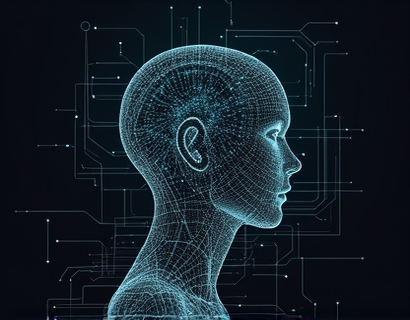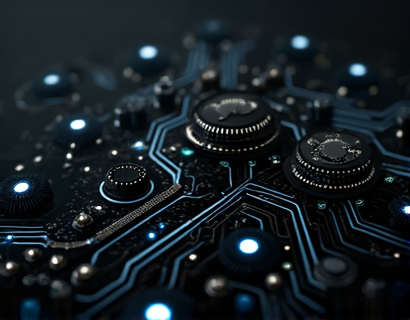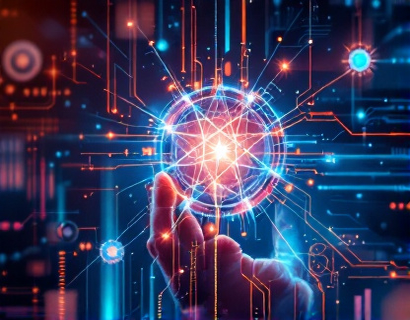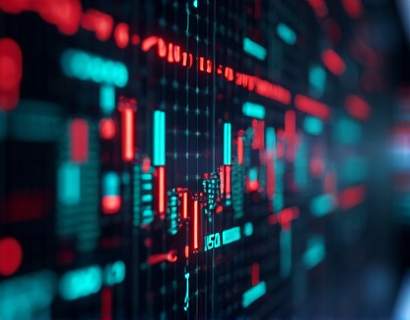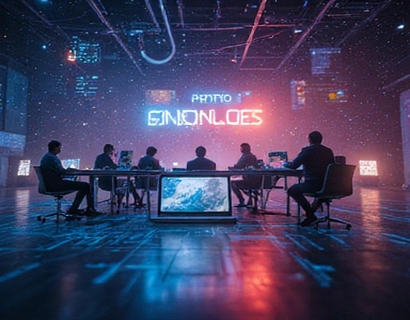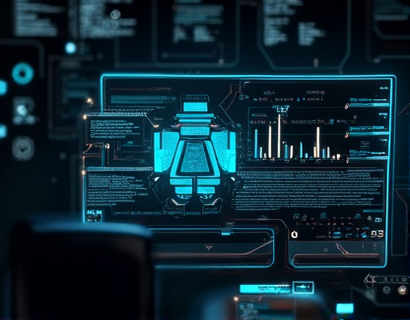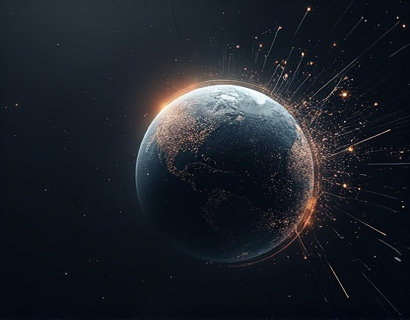Decentralized AI Meets Crypto: Pioneering Next-Gen Digital Transformation
The intersection of decentralized technologies and artificial intelligence is giving birth to a new era of digital transformation. This fusion is not just a convergence of two revolutionary fields but a synergy that promises to redefine how we interact with digital services and applications. At the heart of this transformation are innovations in decentralized AI ecosystems, which leverage the strengths of both blockchain technology and machine learning to create more secure, transparent, and efficient digital solutions.
Decentralized AI, often referred to as DeFi (Decentralized Finance) in the context of finance, extends beyond financial applications to encompass a broad spectrum of services including data management, content creation, and smart contract execution. The integration of AI into decentralized systems enhances these applications by introducing advanced analytics, predictive modeling, and automated decision-making capabilities. This article delves into the pioneering developments in this space, focusing on how decentralized AI-powered ecosystems are unlocking the full potential of both crypto and AI for next-generation digital solutions.
Understanding Decentralized AI Ecosystems
A decentralized AI ecosystem is built on blockchain technology, which provides a decentralized and tamper-proof infrastructure for AI applications. Unlike traditional AI systems that rely on centralized servers and databases, decentralized AI distributes data and computation across a network of nodes. This distribution not only enhances security and privacy but also improves scalability and resilience against single points of failure.
The core components of a decentralized AI ecosystem include decentralized data storage, AI model training and inference, and governance mechanisms. Decentralized data storage solutions like InterPlanetary File System (IPFS) and Filecoin enable the storage and sharing of large datasets in a secure and decentralized manner. These systems use blockchain to ensure data integrity and ownership, allowing developers to build AI models on distributed data sources without compromising privacy.
AI model training and inference in a decentralized ecosystem involve distributing the computational load across multiple nodes. This approach not only reduces the burden on individual devices but also enhances the model's robustness by incorporating diverse data sources. Platforms like TensorFlow and PyTorch are being adapted for decentralized environments, enabling developers to train and deploy AI models on a network of nodes. The inference phase, where AI models make predictions or decisions, can also be decentralized, ensuring that sensitive data remains on the user's device and only the results are shared.
Enhancing Security and Privacy
One of the most significant advantages of decentralized AI ecosystems is the enhanced security and privacy they offer. Traditional AI systems often face challenges related to data breaches and unauthorized access to sensitive information. In a decentralized setup, data is encrypted and stored across multiple nodes, making it difficult for malicious actors to access or manipulate the data. Additionally, blockchain's immutable nature ensures that once data is recorded, it cannot be altered, providing a high level of trust and reliability.
Privacy-preserving techniques such as homomorphic encryption and zero-knowledge proofs are integral to decentralized AI. Homomorphic encryption allows computations to be performed on encrypted data without decrypting it, ensuring that sensitive information remains protected throughout the AI process. Zero-knowledge proofs enable one party to prove to another that a statement is true without revealing any information beyond the truth of that statement. These techniques are crucial for building AI applications that respect user privacy and comply with data protection regulations.
Improving Efficiency and Scalability
Decentralized AI ecosystems also address the scalability and efficiency issues that plague centralized AI systems. By distributing the computational load, these ecosystems can handle larger and more complex datasets without the risk of overloading a single server. This distribution not only improves performance but also reduces costs associated with cloud computing resources.
Moreover, decentralized AI can leverage the collective computational power of the network, making it possible to perform tasks that would be infeasible on a single device. This collective computing power is particularly beneficial for training large and complex AI models, such as those used in natural language processing and computer vision. The ability to scale resources dynamically based on demand ensures that the ecosystem can adapt to varying workloads efficiently.
Use Cases and Applications
The potential applications of decentralized AI ecosystems are vast and varied. In the realm of finance, decentralized AI can enhance fraud detection, risk assessment, and algorithmic trading by analyzing vast amounts of data in real-time and providing insights that are both accurate and unbiased. In healthcare, decentralized AI can improve patient care through personalized treatment plans, predictive diagnostics, and secure sharing of medical records.
In the content creation space, decentralized AI can empower creators by automating content generation, optimizing SEO, and personalizing user experiences. For instance, AI-driven content recommendation systems can analyze user preferences and behavior to suggest relevant content, enhancing engagement and user satisfaction. In supply chain management, decentralized AI can optimize logistics, predict demand, and ensure transparency by tracking products from production to delivery.
Another promising application is in the field of Internet of Things (IoT). Decentralized AI can process and analyze data from numerous IoT devices in real-time, enabling smart homes, cities, and industries to operate more efficiently and securely. The decentralized nature of these systems ensures that data is not centralized in a single point, reducing the risk of large-scale cyber attacks.
Challenges and Future Directions
Despite the numerous benefits, decentralized AI ecosystems face several challenges that need to be addressed for widespread adoption. One of the primary challenges is the lack of standardization in decentralized AI frameworks and protocols. The absence of industry-wide standards can lead to fragmentation and interoperability issues, hindering the seamless integration of different AI applications and services.
Another challenge is the energy consumption associated with blockchain and AI computations. While decentralized systems aim to be more sustainable than centralized counterparts, the computational requirements of AI models, especially deep learning, can be energy-intensive. Research into more efficient algorithms and the use of renewable energy sources is essential to mitigate this impact.
Furthermore, the governance of decentralized AI ecosystems is a complex issue. Ensuring that the ecosystem is fair, transparent, and aligned with the interests of all stakeholders requires robust governance mechanisms. This includes developing decentralized autonomous organizations (DAOs) that can make collective decisions and manage the ecosystem's resources effectively.
Looking ahead, the future of decentralized AI is promising. Advancements in quantum computing, edge computing, and 5G technology will further enhance the capabilities of decentralized AI ecosystems. Quantum computing, in particular, has the potential to revolutionize AI by solving complex optimization problems that are currently intractable for classical computers. Edge computing will enable AI models to run closer to the data source, reducing latency and improving real-time decision-making.
As the technology matures, we can expect to see more innovative applications across various industries, from smart cities to autonomous vehicles. The integration of decentralized AI with other emerging technologies like blockchain, 5G, and IoT will create a more interconnected and intelligent digital world, where data is secure, computations are efficient, and services are personalized and responsive.
In conclusion, the convergence of decentralized technologies and AI is paving the way for a new generation of digital solutions that are more secure, efficient, and user-centric. By leveraging the strengths of both fields, we can build a more resilient and inclusive digital ecosystem that empowers individuals and organizations alike. The journey ahead is exciting, and the potential for innovation is limitless.




